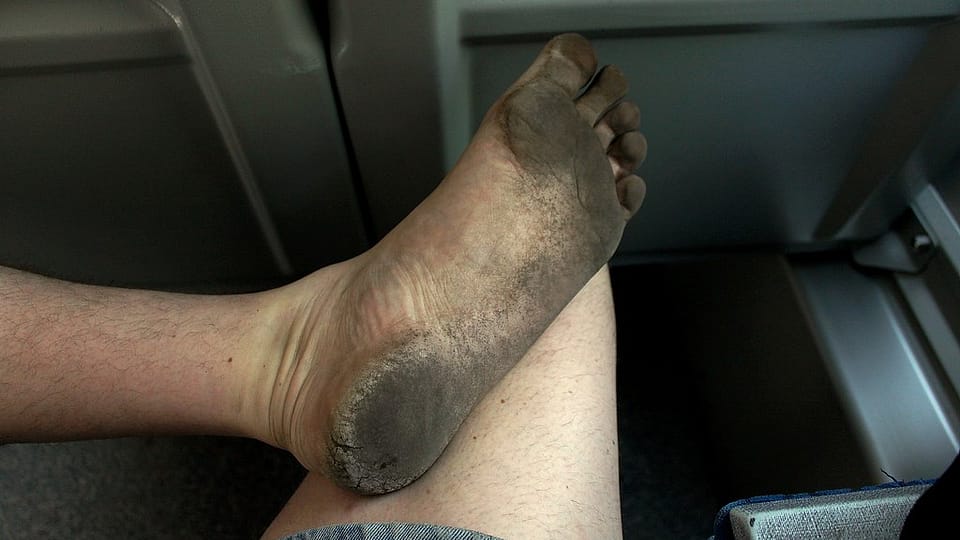
The Importance of Personal Hygiene in Grappling

Introduction
Ringworm and Staph infections are common skin conditions that pose significant health risks. Although caused by different pathogens, both can lead to serious complications if not properly treated. This article explores the nature of these infections, their hazards, preventive measures, and specific strategies for athletes who practice grappling sports to avoid these infections.
Lack of personal hygiene is a significant contributor to the spread of both Staph and ringworm infections. When individuals fail to maintain proper cleanliness, such as not washing their hands regularly, neglecting to shower after physical activity, or reusing unclean clothing and gear, they create an environment where bacteria and fungi can thrive. In particular, the sweat and dead skin cells that accumulate on the body provide a fertile breeding ground for these pathogens. For athletes involved in contact sports, the risks are even higher, as close physical contact can easily transfer these infections from one person to another. Without proper hygiene practices, minor skin irritations can quickly escalate into more serious infections, leading to extended recovery times and potential complications.
Ringworm (Tinea Infections)
Ringworm, caused by fungi known as dermatophytes, is highly contagious and spreads through direct contact with an infected person or contaminated objects. Athletes in grappling sports, such as wrestling, Brazilian Jiu-Jitsu, and judo, are particularly at risk due to the close physical contact and shared equipment involved in these sports.
- Health Hazards: Ringworm causes red, itchy, scaly patches on the skin, often forming a ring shape. For athletes, untreated ringworm can lead to prolonged downtime from training and competition, as well as secondary bacterial infections from scratching.
- Prevention and Treatment: Athletes can prevent ringworm by maintaining strict personal hygiene, regularly washing their training gear, and avoiding the sharing of personal items like towels and mats. Showering immediately after practice, using antifungal body washes, and regularly inspecting the skin for any signs of infection are critical steps. Mats should be disinfected daily, and athletes with visible skin infections should avoid training until fully cleared by a healthcare provider. Treatment typically involves antifungal creams and, in severe cases, oral antifungal medications.
Staph Infections

Staphylococcus (Staph) infections, caused by Staphylococcus bacteria, can lead to minor skin conditions or severe, life-threatening diseases if not properly managed. The risk of Staph infections, including MRSA (Methicillin-resistant Staphylococcus aureus), is heightened in grappling sports due to the frequent skin-to-skin contact and potential for skin abrasions.
- Health Hazards: For athletes, Staph infections can result in painful abscesses, cellulitis, and in severe cases, systemic infections requiring hospitalization. MRSA is particularly concerning due to its resistance to common antibiotics, making it harder to treat and control.
- Prevention and Treatment: Preventing Staph infections in grappling sports involves several key practices:
- Hygiene: Athletes should wash their hands frequently, shower immediately after training, and keep any cuts or abrasions clean and covered with waterproof bandages.
- Clean Gear: Training gear, including uniforms and mats, should be cleaned and disinfected after every use.
- Avoidance of Shared Items: Personal items like towels, razors, and water bottles should not be shared.
- Regular Skin Checks: Athletes should routinely inspect their skin for any signs of infection and seek immediate medical attention if any suspicious lesions or symptoms develop.
- Prompt Treatment: Minor Staph infections can be treated with topical antibiotics, but more severe cases, especially those involving MRSA, may require stronger oral or intravenous antibiotics and professional medical care. Athletes diagnosed with a Staph infection should refrain from training until fully cleared by a healthcare provider to prevent spreading the infection to others.

Conclusion
Ringworm and Staph infections are significant risks for athletes involved in grappling sports due to the nature of close physical contact and shared environments. However, with proper hygiene, vigilant monitoring, and prompt treatment, these infections can be effectively prevented and managed, allowing athletes to maintain their health and continue their training and competition without disruption. Regular consultation with healthcare providers and adherence to preventive measures are crucial for athletes to protect themselves and their teammates from these infections.
To read other Blog articles 📖 that I have published. Simply click 🖱️on this URL Annapolis Jiu Jitsu Blog Articles.
If you want to take your grappling performance 💪 to the next level. Check out A1Grappler. Our specific line of Grappling 💊Nutritional Supplements, designed by Grapplers for Grapplers🥋🤼♀️ .
Interested in Brazilian Jiu Jitsu. Start in Annapolis’ premier Jiu Jitsu Academy. Our instructor staff consists of Brazilian National Champions, Pan American World Champion Masters World Champions and North American Grappling Champions. It gets NO better than Team Randori. Click HERE TO START.
Professor Al Hogan is a recent inductee in the U.S. Martial Arts Hall of Fame (2024) and a two time IBJJF Masters World Champion and Pan American Champion. He is renowned for his expertise in Brazilian Jiu Jitsu and Defensive Tactics Instruction, catering to the Jiu Jitsu enthusiast, law enforcement, military and security personnel.
👊 If you’re ready to amplify your Jiu Jitsu journey under Professor Al's tutelage, we offer you a complementary Free Trial Membership in our academy.









